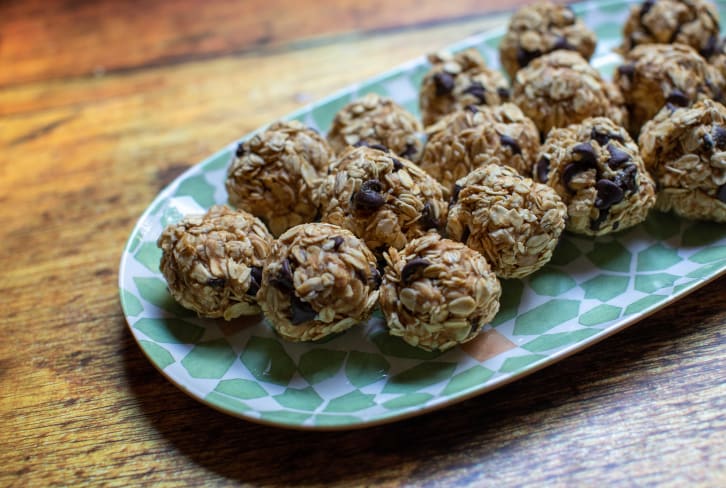Advertisement
Exactly How To Use Intermittent Fasting To Lose Weight & Heal Your Gut

In my practice, I’ve repeatedly seen how intermittent fasting (IF) can help patients lose weight, feel better, and reduce their disease risk.
When they stay committed to fasting long-term, sticking diligently with a plan that works for them, they get amazing results and, more importantly, sustain those results over time.
IF, which involves intermittently eating and then not eating for certain periods of time, has been shown to protect against certain disorders such as diabetes and cardiovascular disease1.
While it might seem obvious why you would lose weight fasting—you’re taking in fewer overall calories, presumably—researchers propose other mechanisms are also at work, including improved blood sugar control and insulin sensitivity.
But an often-overlooked benefit of IF and weight loss is gut health. Researchers find beyond its benefits on your body and brain, IF could favorably influence the balance of beneficial gut flora that protect against metabolic syndrome2, a traffic jam of issues that include high blood sugar and abdominal obesity.
You win on every level: You look and feel better. Gut health improves. And lower inflammation scores reduce your risk for nearly every disease.
I find many patients eat gut-unhealthy foods before bedtime. Fasting makes a great way to eliminate that bad habit. In other words, you eat a gut-friendly dinner then close up the kitchen for the night.
Among its benefits, fasting gives your overworked gut a break from energy-intensive tasks like digesting and assimilating food.
Studies3 show that restoring gut balance can help you lose weight and become healthier. In one such study, researchers put overweight people on a weeklong fasting program followed by a six-week intervention with a probiotic supplement.
At the end of the study, they found increased abundance and diversity of gut microbiota with these participants, including a relatively newly discovered bacteria in the genus Akkermansia, which is associated with a healthy gut and normal weight.
This study highlights how powerful even short-term fasting can be for gut health but also the importance of getting sufficient healthy gut bacteria through fermented foods or (as participants here received) a probiotic supplement. I like to think of regular, consistent fasting as hitting the reset button on your gut and overall health.
"We say that fasting is very similar to rebooting the hard drive in a computer. Sometimes, the computer gets corrupted, and you do not know exactly where the problem is. But if you just turn it off and reboot it, a lot of times, that corruption gets cleared out," says Dr. Alan Goldhamer, the lead researcher on a study on the subject5. "The same thing happens in the human body. We develop issues, and when you turn the system down with fasting and allow it to reboot, a lot of things—from gut flora and microbiota in the gut to chronic inflammatory conditions—tend to sort themselves out."
Fasting can also eliminate food sensitivities, the delayed reaction many people have to particular foods.
"I initially became interested in fasting for its applications in healing the gut," says Dr. Michael Ruscio in The Complete Guide to Fasting by Dr. Jason Fung. "Many of the patients I work with have severe food sensitivities even though they have very healthy diets. For these patients there is usually some underlying inflammatory or infectious issue. Fasting can provide instantaneous relief of symptoms and aids in supporting recovery from the underlying issue."
To optimize fasting and get all these benefits, you must incorporate a healthy-gut diet.
However, interestingly, even short-term fasting as in the above-mentioned study can improve the diversity of the gut flora.
Unfortunately, researchers believe6 we’ve lost that diversity during the past 50 years. Increasingly limited food diversity, GMOs, pesticides, and the overuse of antibiotics continue to be direct threats to the diversity of the human gut microbiome.
The next generation may be the first starting with a markedly diminished variety in gut flora.
And speaking of a diverse diet, I don’t mean choosing a different type of burger during happy hour. I mean a varied plant-based diet rich in whole foods, including plenty of healthy fats and some protein, to help stimulate the type of bacterial diversity that promotes weight loss.
On the other hand, a diet lacking this variety and full of processed foods will promote a less diverse, harmful gut microbiome population, which leads to weight gain.
If you’re new to fasting, I recommend eating an early dinner, stop eating for the evening, and push breakfast forward the next morning. Just by doing that even a few times a week, you can create a near-effortless 12- to 14-hour fasting window that helps heal your gut and so much more.
Whether you’re a fasting newbie or already fast but want to heal your gut, these five strategies can help you optimize your plan.
5 strategies to consider when implementing IF for gut health:
1. Fix your gut problems first
If you suspect dysbiosis or any other gut problems, work with a functional medicine practitioner or someone who specializes in gut health to heal your gut, or get a head start with my Quick Start Guide to a happy gut. IF will complement and enhance those gut-healing efforts, and once you’ve healed, will help you better maintain that happy gut.
2. Be mindful about food sensitivities
Gluten, soy, dairy, and other food sensitivities can wreak havoc on your gut and overall health while sabotaging your fasting efforts. I recommend pulling these common offenders for four to six weeks—it might take longer, and some offending foods might have to go for good—and notice if you feel fewer symptoms, including swelling and bloating. These are clues about whether the foods were actually fueling the fire in your gut.
3. Incorporate plenty of fermented and cultured foods
A number of fermented and cultured foods can support the growth and proliferation of your "good" bacteria. Among them include cultured foods like yogurt or kefir, fermented vegetables, sauerkraut, and kimchi, as well as cultured beverages containing favorable live bacteria such as kombucha or coconut water kefir (grab the recipe at the bottom). If you’re not regularly eating these and other foods, look for dairy-free probiotics that contain at least 15 billion CFUs each of Lactobacillus and Bifidobacterium (a total of 30 billion CFUs) guaranteed by the manufacturer through the expiration date.
4. Combine fasting with keto
Ketogenic diets are high in fat, moderate-protein, and very low in carbs (usually 50 grams or less). Doing keto incorrectly—read: lots of meat with few plant-based foods—can mess with your gut microbiome. A well-designed ketogenic diet should include plenty of fiber-rich carbohydrates, fermented and cultured foods, and prebiotic-rich vegetables including Jerusalem artichokes and raw scallions. The good news is you can fit plenty of these foods into your keto plan and stick to the 50-gram carb allotment.
5. Remember, gut health is affected by more than just your diet
Even when you’re doing everything correctly diet-wise, things like stress, bad sleep, and lack of exercise can all affect your gut microbiome. In two recent studies (one rodent and the other human), when researchers isolated and stabilized other factors that might alter the intestinal microbiota, they found exercise alone could positively affect your gut microbes.
mbg tip
6 Sources
- https://www.ncbi.nlm.nih.gov/pmc/articles/PMC5411330/
- https://www.ncbi.nlm.nih.gov/pmc/articles/PMC3946160/
- https://www.ncbi.nlm.nih.gov/pmc/articles/PMC4452615/
- https://www.ncbi.nlm.nih.gov/pubmed/28715993
- https://www.ncbi.nlm.nih.gov/pmc/articles/PMC4684131/
- https://www.ncbi.nlm.nih.gov/pmc/articles/PMC4837298/
Watch Next
Enjoy some of our favorite clips from classes
Enjoy some of our favorite clips from classes
What Is Meditation?
Mindfulness/Spirituality | Light Watkins
Box Breathing
Mindfulness/Spirituality | Gwen Dittmar
What Breathwork Can Address
Mindfulness/Spirituality | Gwen Dittmar
The 8 Limbs of Yoga - What is Asana?
Yoga | Caley Alyssa
Two Standing Postures to Open Up Tight Hips
Yoga | Caley Alyssa
How Plants Can Optimize Athletic Performance
Nutrition | Rich Roll
What to Eat Before a Workout
Nutrition | Rich Roll
How Ayurveda Helps Us Navigate Modern Life
Nutrition | Sahara Rose
Messages About Love & Relationships
Love & Relationships | Esther Perel
Love Languages
Love & Relationships | Esther Perel
What Is Meditation?
Box Breathing
What Breathwork Can Address
The 8 Limbs of Yoga - What is Asana?
Two Standing Postures to Open Up Tight Hips
How Plants Can Optimize Athletic Performance
What to Eat Before a Workout
How Ayurveda Helps Us Navigate Modern Life
Messages About Love & Relationships
Love Languages
Advertisement

These Peanut Butter Cup Protein Bites Make The Perfect On-The-Go Snack
Molly Knudsen, M.S., RDN











